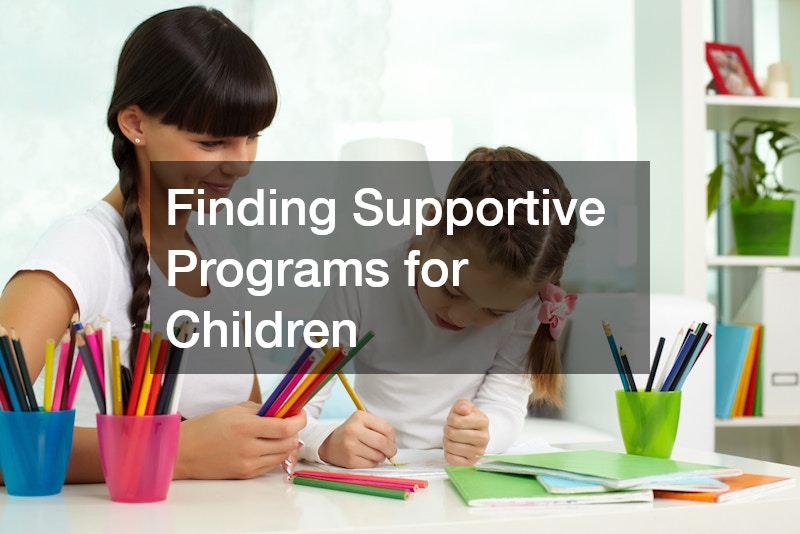Caring for both aging parents and growing children is one of the most emotionally, physically, and financially demanding experiences an adult can face. Those caught between these two responsibilities are often referred to as the “sandwich generation.” These individuals juggle full-time jobs, parenting duties, and elder care—while still trying to find time for themselves. Managing sandwich generation stress requires planning, open communication, and compassionate boundaries. With a proactive mindset and the right community resources, it’s possible to nurture your loved ones without losing sight of your own well-being.
Understanding the Sandwich Generation Experience
Before addressing how to manage sandwich generation stress, it’s essential to understand why it happens. The term “sandwich generation” typically refers to adults—often in their 30s, 40s, or 50s—who are simultaneously raising children and supporting aging parents. Many find themselves financially stretched, emotionally overwhelmed, and physically exhausted as they try to meet everyone’s needs.
One major cause of stress is the lack of time and energy. After long workdays, caregivers often spend evenings helping children with homework or coordinating medical appointments for parents. The mental load of this dual responsibility can cause chronic fatigue, anxiety, and burnout. Another factor is the emotional tug-of-war that comes with caregiving. Parents may need increased support due to cognitive decline or physical limitations, while children still depend heavily on parental attention and stability.
Additionally, financial strain can heighten sandwich generation stress. Between paying for childcare, college funds, and elder medical care, families often feel the pinch. Health care costs, especially for those managing chronic illnesses or dementia in elderly parents, add layers of complexity. Recognizing these pressures is the first step toward developing practical strategies that help restore balance.
Fortunately, there are community resources that can alleviate some of the burden. Programs that focus on both youth development and elder support can significantly reduce the daily strain caregivers face. By leveraging these services and cultivating self-care routines, members of the sandwich generation can begin to reclaim their energy and peace of mind.
Finding Supportive Programs for Children
Managing sandwich generation stress often begins with ensuring children have safe, engaging environments outside the home. Structured programs such as summer camps and after-school programs can provide invaluable support. Enrolling kids in enriching activities during school breaks allows parents to focus on other responsibilities—especially when coordinating medical care or managing household logistics for elderly parents.
Summer camps offer a unique opportunity for children to build independence and social skills while giving caregivers time to address their own needs or those of aging family members. From outdoor adventures to creative arts programs, these experiences help children grow in confidence and resilience. Meanwhile, caregivers gain precious hours for errands, self-care, or caregiving duties.
For parents with younger children, early childhood centers provide a nurturing educational environment. These programs emphasize developmental milestones, socialization, and emotional learning, giving children a strong foundation before entering school. When choosing an early childhood center, parents should look for licensed facilities that prioritize safety, individualized learning, and consistent communication with families.
Similarly, enrolling little ones in a pre k school can ease the daily burden of balancing multiple caregiving responsibilities. These schools prepare children for kindergarten while offering flexible schedules that accommodate working parents. Reliable early education not only fosters academic growth but also reduces the day-to-day stress of keeping young children occupied and stimulated at home. Having trusted educators in your support network is one of the most effective ways to manage time and maintain balance between child and elder care responsibilities.
Maintaining Family Health and Routine Care
Family health management plays a critical role in reducing sandwich generation stress. Between pediatric visits and aging parent medical appointments, caregivers often feel overwhelmed trying to keep up with routine care. Establishing consistent healthcare schedules helps ensure that everyone’s needs are met without last-minute chaos.
For instance, maintaining regular visits with local dentists ensures the whole family receives preventive oral care before small issues turn into costly emergencies. Coordinating appointments for multiple generations may seem daunting, but many modern dental offices accommodate family scheduling to make visits more efficient. Preventive care reduces long-term costs and helps everyone maintain good health—something essential when your time and energy are limited.
In addition to medical checkups, caregivers should also pay attention to the smaller, routine services that streamline family life. For example, dry cleaning pick up and delivery services can save valuable hours each week. Automating errands like this can be a game-changer, allowing you to dedicate more time to caregiving or self-care. Convenience-based services lighten the mental load that often accompanies sandwich generation responsibilities.
By managing these small but essential details of family health and organization, caregivers can reduce the feeling of being constantly behind. This creates space for emotional recovery and allows for more quality interactions with both parents and children—without the constant rush.

Caring for Aging Parents with Dignity and Support
One of the most emotionally demanding aspects of sandwich generation stress involves caring for elderly parents. Many aging adults prefer to stay at home for as long as possible, but safety concerns, health issues, and cognitive decline may make this increasingly difficult. This is where community resources such as a memory care community or adult assisted living facility, become invaluable.
A memory care community offers specialized support for seniors experiencing dementia or Alzheimer’s. These centers are designed to provide structured routines, mental stimulation, and compassionate care while ensuring residents’ safety. Knowing that your loved one is receiving expert attention can greatly ease your mental and emotional burden. On the other hand, adult assisted living facilities provide a balance between independence and support. Residents maintain private living spaces but have access to assistance with meals, medication, and daily tasks. This option is ideal for older adults who do not need full-time nursing care but still benefit from supervision and socialization.
The key to navigating elder care is communication. Discussing preferences early with your parents can prevent guilt and confusion later. Explore the types of care they might consider acceptable, whether that means in-home care, community programs, or residential facilities. Financial planning is also crucial—long-term care insurance or veterans’ benefits may offset costs. By being proactive, you can reduce the uncertainty that often fuels sandwich generation stress.
Balancing Work Responsibilities and Family Life
Balancing a career with caregiving duties is one of the greatest challenges of sandwich generation stress. Many caregivers are still in the prime of their professional lives, managing leadership roles or climbing career ladders. The expectation to perform well at work while caring for family members at home can lead to burnout and guilt.
Open communication with employers can make a tremendous difference. Many workplaces now recognize the challenges faced by family caregivers and offer flexible scheduling, remote work options, or family leave benefits. Discussing your needs transparently can help create a manageable schedule without compromising professional performance.
Setting realistic expectations for yourself is also important. You may not be able to give 100% to every task every day—and that’s okay. Prioritization is key. Identify what tasks absolutely require your attention and delegate where possible. Using organizational tools, shared calendars, and reminder systems can help you stay on top of deadlines and appointments.
Self-compassion is essential in this balancing act. Recognize that being a caregiver is an ongoing commitment that takes emotional energy. Instead of striving for perfection, focus on consistency and stability. This shift in mindset helps preserve your emotional health and prevents resentment from building over time.
Taking Care of Family Pets
For many families, pets are an important source of comfort and companionship. However, caring for animals can add another layer to sandwich generation stress. Between walks, feeding, grooming, and vet appointments, managing pet care can feel overwhelming when your schedule is already full. Fortunately, there are convenient local options to help.
Dog boarding services offer temporary housing for pets when caregivers need time away—whether for work trips, hospital visits, or much-needed rest. Many facilities provide personalized attention, playtime, and safe accommodations so you can focus on family matters without worrying about your furry friend’s well-being.
Similarly, a local pet hotel provides extended care with additional amenities such as grooming, training, and social interaction. Choosing a reputable facility ensures your pet remains happy and healthy while you tend to caregiving responsibilities. Having this peace of mind reduces guilt and allows you to focus on your human family members without neglecting your pets’ needs.
Including your pets in your self-care plan can also ease emotional tension. Studies show that spending time with animals lowers stress levels and promotes emotional stability. Even a few minutes of petting or playing with your dog can calm your nervous system and help you reset after a long day of caregiving. Managing pet responsibilities smartly ensures you continue reaping the emotional rewards pets provide while keeping overall responsibilities manageable.
Staying Organized During Major Life Transitions
Life transitions, such as relocating for work or accommodating aging parents, can add new layers to sandwich generation stress. A major relocation—especially something like a military move—requires careful planning, emotional resilience, and logistical coordination. Moving with both children and elderly family members involves organizing medical records, transferring school enrollments, and ensuring everyone’s comfort during the transition.
Preparation is your greatest ally during such times. Begin by creating a detailed checklist covering every aspect of the move—from housing arrangements and packing schedules to utility transfers and pet accommodations. Many relocation support services offer guidance for families managing complex moves. If the transition is related to a military move, explore government resources that help with family housing, healthcare continuity, and community integration.
It’s equally important to maintain emotional stability throughout transitions. Change can trigger anxiety for both children and older adults. Establishing routines as quickly as possible in the new environment helps everyone adapt. Whether that means finding new healthcare providers, schools, or recreational programs, consistency fosters a sense of security. Organization and clear communication reduce the chaos associated with moving or adjusting to major life changes. When transitions are handled with structure and support, they become opportunities for growth rather than sources of stress.

Creating a Sustainable Self-Care Plan
Sustaining your own well-being is essential for managing sandwich generation stress. Caregivers often prioritize everyone else’s needs and neglect their own, which leads to exhaustion and emotional burnout. Creating a personal self-care plan ensures you remain healthy and resilient.
Start by setting boundaries. It’s important to know when to say no, even to family. Overcommitting will only deplete your energy and increase resentment. Schedule personal time as non-negotiable, whether it’s reading, exercising, meditating, or enjoying a quiet walk. Consistency matters more than duration—regular moments of rest and reflection will restore balance.
Social support is equally vital. Surround yourself with understanding friends, support groups, or counseling services. Sharing your experiences helps validate your feelings and reminds you that you’re not alone. Local caregiver support groups or online communities can provide valuable resources and coping strategies.
Don’t hesitate to accept help. Many people resist outside assistance, believing they should handle everything themselves. In reality, outsourcing tasks such as errands, cleaning, or transportation through community services is a sign of strength, not weakness. For instance, hiring dry cleaning pick up and delivery services or scheduling grocery delivery can save time and mental energy.
Finally, celebrate small victories. Whether you successfully coordinated medical care for your parent or managed to have a family dinner without distractions, every step forward deserves recognition. This mindset shift helps reduce guilt and fosters gratitude in the midst of caregiving challenges. Sustainable self-care doesn’t mean eliminating stress—it means creating systems that allow you to live well within it.
Embracing Balance and Compassion
Managing sandwich generation stress is an ongoing journey, not a one-time solution. It requires balancing competing priorities, nurturing multiple relationships, and maintaining personal resilience. By leveraging community resources such as summer camps, early childhood centers, local dentists, dog boarding services, and adult assisted living facilities, caregivers can build a support system that sustains the entire family.
The sandwich generation embodies compassion, responsibility, and endurance. While the challenges are significant, so too are the rewards. By caring for both children and aging parents, you create a legacy of love and commitment that shapes future generations. With thoughtful planning, open communication, and self-care, it’s possible to transform the pressure of being “sandwiched” into a profound source of strength and purpose.





